The Writing Life of: Joy Rhoades
Joy Rhoades
This week on ‘The Writing Life of:‘ I am thrilled to be interviewing author Joy Rhoades. Joy will be sharing with us detail of her writing life, telling us all about her latest book ‘The Woolgrower’s Companion‘, which was released on 28th June 2018, and answering a few fun questions too. Post contains affiliate links.
So without further ado I’ll hand you over to Joy Rhoades.
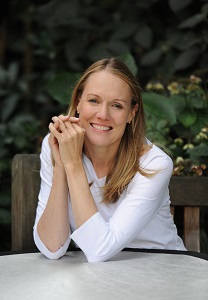
I grew up in a small town in the bush in Queensland, Australia. I spent my time with my head in a book, or outdoors – climbing trees, playing in dry creek beds, or fishing for yabbies in the railway dam under the big sky. Some of my favourite memories were visiting my grandmother’s sheep farm in rural New South Wales where my father had grown up. She was a fifth generation grazier, a lover of history, and a great and gentle teller of stories. My childhood gave me two passions: a love of the Australian landscape and a fascination with words and stories.
I left the bush at 13 when I went to boarding school in Brisbane. I stayed on there to study law and literature at the University of Queensland. After, my work as a lawyer took me first to Sydney and then all over the world, to London, Hong Kong, Singapore, Tokyo and New York. But I always carried in my head a strong sense of my childhood: the people, the history, the light and the landscape. Those images have never left me and they would eventually become The Woolgrower’s Companion. It’s a story I’ve felt I had to tell.
I currently live in London with my husband and our two young children. But I miss the Australian sky.
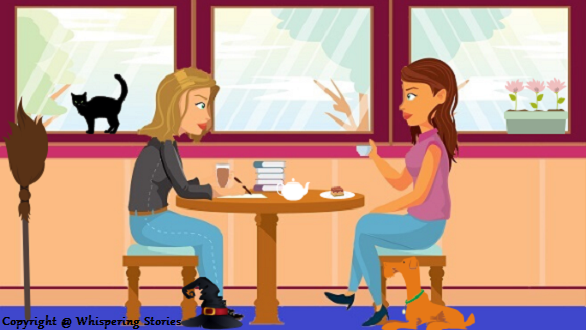
1) As a child what did you want to do when you grew up?
I always loved books and reading, with a passion so whatever it was, I knew words would be my work. I wanted to be a writer or a journalist or a lawyer and as the other two, journalism and writing, weren’t really options in the small town in Australia where I grew up, I became a lawyer. But I always hankered to see my name on a book ?
2) Who were your favourite childhood authors?
I loved Enid Blyton, although her experience seemed so remote from mine. The children never watched where they put their feet (on the lookout for snakes) or worried that Timmy, their dog, might die from a tick bite or a spider bite.
I also loved Ruth Park’s series of books, The Muddle-headed Wombat. And then I loved the Nancy Drew books too, as I got a bit older, along with Robert Louis Stevenson. Anything really. Anything with a gripping story, was my bag. And I haven’t changed in that regard. I read lots of different things now, my only criteria being a great story.
3) At what point in your life did you realise you wanted to be a writer?
I think I knew when I started seriously studying creative writing. I was working in a bank by day, and doing a creative writing masters program at the New School University, at night. That experience—remarkable professors, remarkable writers all around me—showed me that I could write, and also gave me a kind of map, for how to get there.
4) How did you go about following that dream?
It was when I gave up my day job to take care of my children, that I was able to write, when they were at school. I finished the book then and went on to find an agent, with the help of an editor friend.
5) What is your writing day like? Do you aim for a certain amount of pages or words before you stop for the day?
I try to write, before I do anything else that day. The very first thing I do is to read over what I wrote the day before, usually aloud. Hearing words helps me ‘see’ things that I may not ‘see’ just as plain text on the page. I aim then for 1000 words a day, if I can.
6) Did you ever consider writing under a pseudonym?
My family suggested it several times ? But it’s such a tough process to find an audience, that I felt it would make that even harder. And, touch wood, there’ve been no family complaints so far ?
7) Do you have any strange habits before starting, or whilst in the midst of writing?
I like to be warm! So in winter, I often sit, cocooned in a blanket, like a silk worm. And usually with our cat, Raffie, on my lap. He’s my muse ?
8) Do you write longhand, typewriter, or on a computer?
I write on a computer, although I do carry a notebook and scribble things down as I have an idea or hear a piece of conversation that interests me and that might turn into something. I HAVE to write them there and then, to catch whatever it was that I thought or heard or saw.
9) How many books have you written? Do you have any unpublished work?
Just two, The Woolgrower’s Companion, and a technical book I write ages ago for lawyers. I have a few short stories that I wrote too, when my children were really tiny and I couldn’t squeeze in time for anything longer. Some published, most not!
10) Are you a plotter or a pantser?
I’m a plantser. By that I mean, I’m in the middle. I do plot, so that I have a scene-by-scene map for each book. But then I begin to write and I find the story tends to take me places I didn’t expect. So I follow those leads. It’s like water divining! I have to have faith.
11) Do you read all the reviews left for your book(s)?
Hah! Great question. I dip in and out. So I do read reviews, because I have so much to learn. With negative criticism, I always try hear what the reader might begetting at. I’m committed, like all diehard writers, to better writing. But sometimes they’re funny, not meant for me. Like the book arrived on time.
Concerning your latest book:
Publisher – Vintage
Pages – 416
Release Date – 28th June 2018
ISBN 13 – 978-1784741341
Format – ebook, paperback

Australia 1945. Until now Kate Dowd has led a sheltered life on Amiens, her family’s sprawling sheep station in northern New South Wales. The horrors of war have for the most part left her untouched. But with her father succumbing to wounds he’s borne since the Great War, the management of the farm is increasingly falling on Kate’s shoulders.
With only the sheep-rearing book The Woolgrower’s Companion to guide her, Kate rises to the challenge. However the arrival of two Italian POW labourers unsettles not only the other workers, but Kate too — especially when she finds herself drawn to the enigmatic Luca Canali.
Then she receives devastating news. The farm is near bankrupt and the bank is set to repossess. Given just eight weeks to pay the debt, Kate is now in a race to save everything she holds dear.
12) How long did it take you to get from the idea’s stage to your date of publication?
Gosh. Too long! As this was something that grew and grew it took along time but very much in more fits than starts. But once I was able to concentrate on it—to write while my kids were at school and while I ignored the washing—then it took about 18 months to write. It took about a year from signing with Penguin to having it out in the bookstores in Australia.
13) How did you come up with the names for your characters?
I think character names are incredibly important. I want to hint at character but not give it away, as they will distract from the reader’s experience of getting to know the character. I tend to think about the particular character and his or her traits, and then take a word and derive from it. So one character’s surname is Addison. I’ll leave it up to your readers to figure out if he’s a kind soul or not.
14) Can you give us an insight into your main character(s) life?, What makes them tick?
Kate, my main character is only 23 and she’s been very sheltered, raised to be a lady and not taught to run her parents’ sheep place. The assumption is that she will marry, and her husband will eventually run the farm. But her life conspires to overturn that expectation. Her mother passes away, then the war intervenes and, while her war-romance husband is away serving in the Army, her father becomes too ill to run the place. So Kate must learn to manage it, or lose their home and their livelihood. That overturning of expectations—and the finding of hidden strengths- is much of the book. That and a sudden attraction Kate finds she has for one of the Italian prisoners, working on the sheep station.
15) Which was your hardest scene to write?
There are several sad scenes in the book. And when I’m writing that sort of scene for the first time, I sometimes cry. Part of me then is shocked that I’m in tears. And part of me is elated. Because if I’m crying, my reader just might too. And that’s what I want. To have my novel touch the reader’s emotions, have them feel what my character feels.
16) How did you come up with the title of your book?
I had a couple of earlier titles but they were felt to be not quite right, not quick reflective of the joy and hope that is bound up in the book. And I had been doing a lot of reading about sheep husbandry (as you do ?). It hit me one day that I could write a faux Victorian-era guide to raising sheep. I love Victorian literature so I melded the two: my sheep knowledge with my love of that style of language. And now, at the start of each chapter, is a tip on raising sheep. It’s enabled me to foreshadow things too, on all sorts of things–race and breeding and husbandry–which is wonderful.
17) Did you get a family member/friend to read your work before sending to the publishers?
Yes, all of my immediate family did as well as some cousins, a dear aunt and so on. All knew the family stories so their help and thoughts were wonderful. And each brought their own expertise too, whether on the floral, medical, engine or animal side of things. The same with friends. They were so incredibly helpful.
18) What process did you go through to get your book published?
I was very lucky, With the help of an editor friend, I found an agent relatively quickly. And then the agent found significant interest so we were in the incredible position of having rival publishers bidding. An amazing time.
19) What did you do once you had written the final word in your book?
I’m not sure I’ve ever finished! Even now, when I’m doing a reading at an event, I’ll see something that I’d like to tweak ? I think it’s endemic, that desire to hone.
20) What’s next for you, writing-wise?
I’m thrilled that Penguin Australia has just commissioned the sequel to The Woolgrower’s Companion. So I’m working on that now and it’s wonderful to be back writing and reading and talking to experts, historians and cultural guides.
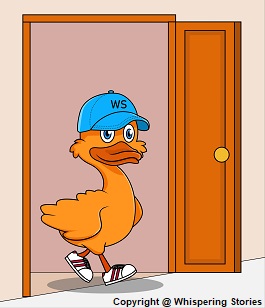
1) What’s your favourite food?
Pistachios (especially pistachio ice-cream) 🙂
2) If you had a box of crayons and you could only choose one, which colour would you choose?
Probably blue. I love the sky, and blue is my mum’s favourite colour, too.
3) What movie could you watch over and over again?
The Princess Bride! But I can always watch Colin Firth in Pride and Prejudice. I also love Black Panther, The Shawshank Redemption, Lost in Translation, The Greatest Showman (!), Raiders of the Lost Arc and Casablanca.
4) What would be the top song on your playlist?
Blondie’s Call Me
5) If you won millions, what would be your first purchase?
A stand mixer!
6) A talking duck walks into your room wearing a baseball cap and sunglasses, whats the first thing he says to you?
‘The name is Duck. Donald Duck.’
You can find out more about Joy Rhoades by visiting the website/social media sites below.
I would like to say a big thank you to Joy Rhoades for sharing with us details of her writing life, and for a wonderful interview.

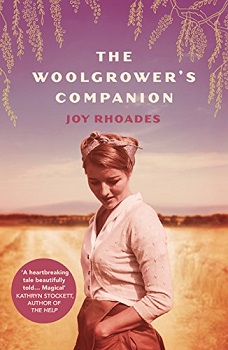
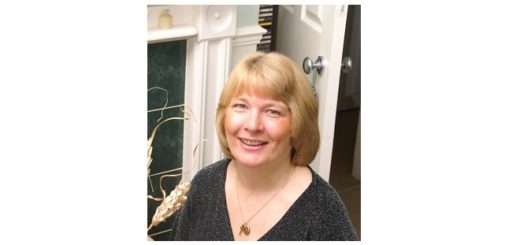

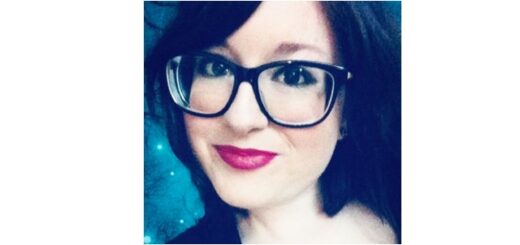

Great post! I had not heard of her before but I’ll have to check her out!
Fabulous interview. I love the ducks first words!
Great interview!
What an awesome interview! Growing up on a farm, I happen to know a lot about sheep husbandry, although I’ve never seen it incorporated into a book. I’m actually super curious about this one.
Cool interview. Love that her favorite food is pistachios! !
I love these interviews, there is so much to learn about authors. It’s a great idea to add a fun section, too!
She is new to me – I love that she is a “plantser!”
I love pistachio ice cream too! white over green 😉
Thank you. I’ve recently read her book and it will be reviewed on the blog tomorrow.
Thanks. Everyone loves the duck question.
Thank you
Wow, I’m not sure I could live on a farm. The book is well worth a read. I’m reviewing it tomorrow on the blog.
Thank you. I actually hate pistachios.
Thank you. Glad that you like the fun section.
She was new to me too. Just finished her book.
I’m not a lover of pistachio.
Wonderful interview. I love that her family read everything before it was published!
What an awesome interview! She sounds like a lovely lady.
So we can consider Ice cream as a food ?
Always 🙂
Thank you.
Thank you. Surprising how few authors let there family read there work. Love that she does.